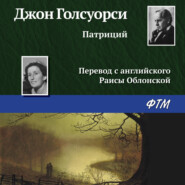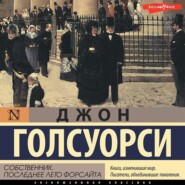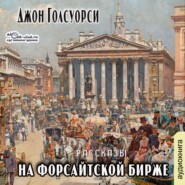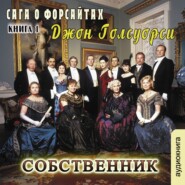По всем вопросам обращайтесь на: info@litportal.ru
(©) 2003-2024.
✖
The Island Pharisees
Настройки чтения
Размер шрифта
Высота строк
Поля
In the hall Shelton went from force of habit to the weighing-scales and took his weight. “Eleven stone!” he thought; “gone up!” and, clipping a cigar, he sat down in the smoking-room with a novel.
After half an hour he dropped the book. There seemed something rather fatuous about this story, for though it had a thrilling plot, and was full of well-connected people, it had apparently been contrived to throw no light on anything whatever. He looked at the author’s name; everyone was highly recommending it. He began thinking, and staring at the fire…
Looking up, he saw Antonia’s second brother, a young man in the Rifles, bending over him with sunny cheeks and lazy smile, clearly just a little drunk.
“Congratulate you, old chap! I say, what made you grow that b-b-eastly beard?”
Shelton grinned.
“Pillbottle of the Duchess!” read young Dennant, taking up the book. “You been reading that? Rippin’, is n’t it?”
“Oh, ripping!” replied Shelton.
“Rippin’ plot! When you get hold of a novel you don’t want any rot about – what d’you call it? – psychology, you want to be amused.”
“Rather!” murmured Shelton.
“That’s an awfully good bit where the President steals her diamonds There’s old Benjy! Hallo, Benjy!”
“Hallo, Bill, old man!”
This Benjy was a young, clean-shaven creature, whose face and voice and manner were a perfect blend of steel and geniality.
In addition to this young man who was so smooth and hard and cheery, a grey, short-bearded gentleman, with misanthropic eyes, called Stroud, came up; together with another man of Shelton’s age, with a moustache and a bald patch the size of a crown-piece, who might be seen in the club any night of the year when there was no racing out of reach of London.
“You know,” began young Dennant, “that this bounder” – he slapped the young man Benjy on the knee – “is going to be spliced to-morrow. Miss Casserol – you know the Casserols – Muncaster Gate.”
“By Jove!” said Shelton, delighted to be able to say something they would understand.
“Young Champion’s the best man, and I ‘m the second best. I tell you what, old chap, you ‘d better come with me and get your eye in; you won’t get such another chance of practice. Benjy ‘ll give you a card.”
“Delighted!” murmured Benjy.
“Where is it?”
“St. Briabas; two-thirty. Come and see how they do the trick. I’ll call for you at one; we’ll have some lunch and go together”; again he patted Benjy’s knee.
Shelton nodded his assent; the piquant callousness of the affair had made him shiver, and furtively he eyed the steely Benjy, whose suavity had never wavered, and who appeared to take a greater interest in some approaching race than in his coming marriage. But Shelton knew from his own sensations that this could not really be the case; it was merely a question of “good form,” the conceit of a superior breeding, the duty not to give oneself away. And when in turn he marked the eyes of Stroud fixed on Benjy, under shaggy brows, and the curious greedy glances of the racing man, he felt somehow sorry for him.
“Who ‘s that fellow with the game leg – I’m always seeing him about?” asked the racing man.
And Shelton saw a sallow man, conspicuous for a want of parting in his hair and a certain restlessness of attitude.
“His name is Bayes,” said Stroud; “spends half his time among the Chinese – must have a grudge against them! And now he ‘s got his leg he can’t go there any more.”
“Chinese? What does he do to them?”
“Bibles or guns. Don’t ask me! An adventurer.”
“Looks a bit of a bounder,” said the racing man.
Shelton gazed at the twitching eyebrows of old Stroud; he saw at once how it must annoy a man who had a billet in the “Woods and Forests,” and plenty of time for “bridge” and gossip at his club, to see these people with untidy lives. A minute later the man with the “game leg” passed close behind his chair, and Shelton perceived at once how intelligible the resentment of his fellow-members was. He had eyes which, not uncommon in this country, looked like fires behind steel bars; he seemed the very kind of man to do all sorts of things that were “bad form,” a man who might even go as far as chivalry. He looked straight at Shelton, and his uncompromising glance gave an impression of fierce loneliness; altogether, an improper person to belong to such a club. Shelton remembered the words of an old friend of his father’s: “Yes, Dick, all sorts of fellows belong here, and they come here for all sorts o’ reasons, and a lot of em come because they’ve nowhere else to go, poor beggars”; and, glancing from the man with the “game leg” to Stroud, it occurred to Shelton that even he, old Stroud, might be one of these poor beggars. One never knew! A look at Benjy, contained and cheery, restored him. Ah, the lucky devil! He would not have to come here any more! and the thought of the last evening he himself would be spending before long flooded his mind with a sweetness that was almost pain.
“Benjy, I’ll play you a hundred up!” said young Bill Dennant.
Stroud and the racing man went to watch the game; Shelton was left once more to reverie.
“Good form!” thought he; “that fellow must be made of steel. They’ll go on somewhere; stick about half the night playing poker, or some such foolery.”
He crossed over to the window. Rain had begun to fall; the streets looked wild and draughty. The cabmen were putting on their coats. Two women scurried by, huddled under one umbrella, and a thin-clothed, dogged-looking scarecrow lounged past with a surly, desperate step. Shelton, returning to his chair, threaded his way amongst his fellow-members. A procession of old school and college friends came up before his eyes. After all, what had there been in his own education, or theirs, to give them any other standard than this “good form”? What had there been to teach them anything of life? Their imbecility was incredible when you came to think of it. They had all the air of knowing everything, and really they knew nothing – nothing of Nature, Art, or the Emotions; nothing of the bonds that bind all men together. Why, even such words were not “good form”; nothing outside their little circle was “good form.” They had a fixed point of view over life because they came of certain schools, and colleges, and regiments! And they were those in charge of the state, of laws, and science, of the army, and religion. Well, it was their system – the system not to start too young, to form healthy fibre, and let the after-life develop it!

















